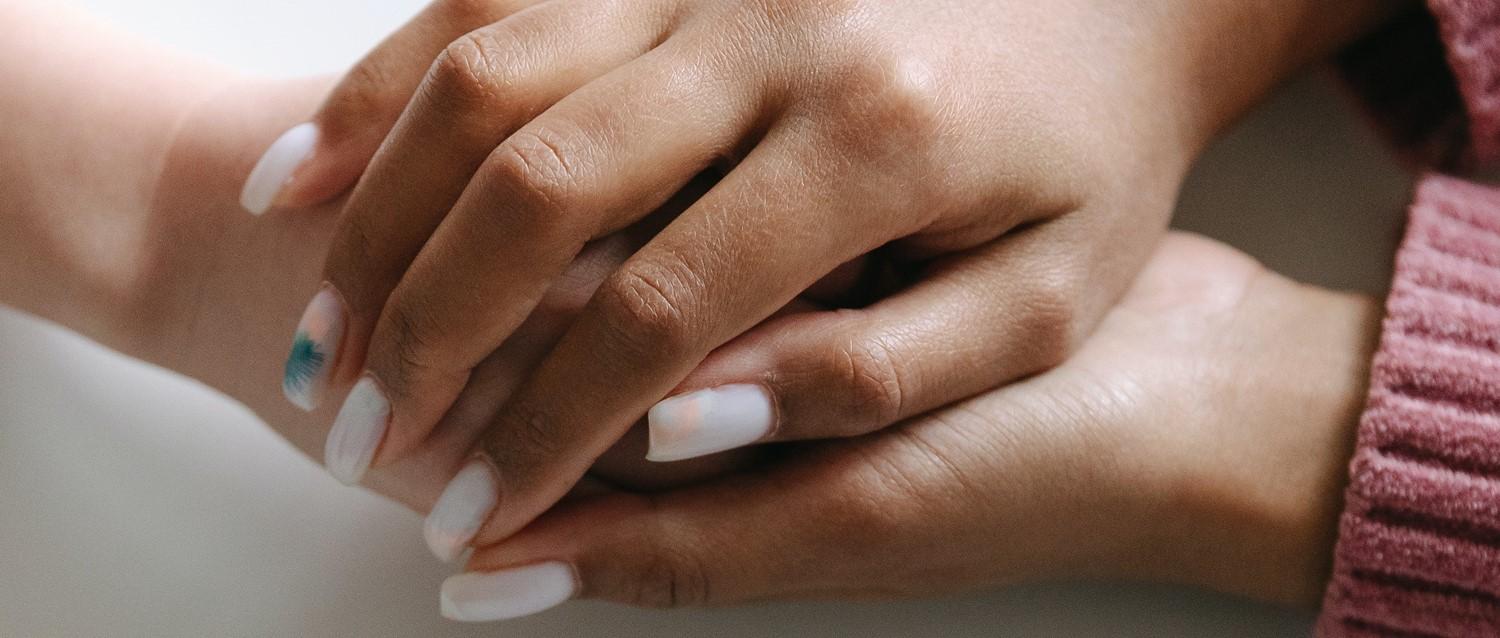
Supporting a loved one with a cancer diagnosis
Peer reviewed by Dr Sarah Jarvis MBE, FRCGPLast updated by Gillian HarveyLast updated 20 Oct 2020
- TéléchargerTélécharger
- Partager
Dealing with a cancer diagnosis can be tough at the best of times, but even more so in the current climate. If a friend or family member is diagnosed or undergoing treatment during this difficult time our instincts will be to help. But with visits possibly out of the question, how can we offer appropriate support without risking a loved-one's health?
Dans cet article :
While our initial reaction to such news might normally be to visit, talk, hug and offer support in person, coronavirus has complicated the situation. "Many people may have certain types of cancer and will classify under what was called shielding. They ought not to be mixing, or seeing anyone outside their own close-knit family unit and those people in turn should be taking additional precautions," explains Dr Stephen Griffin, Chair of the Virus Division of the Microbiology Society.
However, although we may need to be a bit more inventive, there are still many things we can do to help a loved-one undergoing cancer treatment at this difficult time.
Poursuivre la lecture ci-dessous
Close family
If you are a close family member and are able to be physically present to support the patient, it's important to remember that you may have to offer more practical support than you might have in different times, as many people will have to avoid physical contact.
Offer lifts to appointments or even to attend appointments together if allowed. Offering to sit in on telephone appointments or helping your loved-one to organise their treatment schedule and other needs could be an invaluable support.
Being there
If you are unable to visit in person, simply picking up the phone can make a world of difference. It's important not to underestimate the benefit of this type of contact.
"I had lots of friends ringing me and sending messages of support during treatment," says Mary Huckle, fitness trainer of Breakthrough Fitness, who was diagnosed with breast cancer in 2013, and is now living with secondary cancer and undergoing treatment. "I'd also receive gifts or messages in the post, which really brightened my day."
You may not be able to offer a lift to treatment, but that doesn't mean you can't offer support in other ways. "Friends and family members took to leaving food for me, even though they couldn't come in to enjoy it with me," says Huckle. "I was particularly grateful for homemade juices, and anything nutritious - although chocolate was also always welcome!"
Poursuivre la lecture ci-dessous
Offer practical support
If you have the time to offer practical support, this is still possible during the time of coronavirus, with a bit of ingenuity. "I found it really helpful when people offered to do my washing and ironing," says Huckle. "Anything practical - like cleaning or shopping - that I couldn't do easily would make a real difference."
Depending on the cancer patient's current treatment and the coronavirus measures necessary, you may be able to enter a different room in their house to perform tasks, or may have to take bags of washing and ironing from the doorstep - make sure you seek medical advice depending on the specific circumstances.
Support could also be offered when it comes to buying groceries, or helping with online grocery orders, where service availability may fluctuate.
Sélection de patients pour Informations sur le cancer

Le cancer
Why do young LGBTQ+ people have a poorer experience of cancer care?
Living with cancer can be very difficult. Not only can treatments take their toll physically, a cancer diagnosis can lead to anxiety, stress and low mood - as well as other challenging emotions like grief and anger. And for young LGBTQI+ people in particular, research suggests going through cancer care can be particularly distressing.
par Lydia Smith

Le cancer
Mucosite
Mucositis affects the lining of your mouth or gut (bowel) and is often caused by chemotherapy or radiotherapy. Mucositis is often very painful and needs strong painkillers to help control the pain. It often interferes with eating and drinking and has a very negative effect on your quality of life. However, it can be prevented, can be treated and usually gets better soon after the treatment with chemotherapy or radiotherapy has stopped.
par le Dr Colin Tidy, MRCGP
Send a gift!
While someone suffering from a long-term illness may not want to be inundated with daily bunches of flowers, there are lots of inventive gifts you can send that may help to brighten someone's day, or give them the boost they need. "I found practical, pampering items like pillow sprays, or facemasks to help me sleep at night were really thoughtful and helped to make me feel better," says Huckle.
Poursuivre la lecture ci-dessous
Be regular
Arranging a check-in with someone who is living with cancer, especially if they are isolating, can be a real lifeline. Macmillan Cancer Support suggests arranging a regular time when you could call to chat and catch up, making it something to look forward to that will be convenient and welcome.
If you are part of a wider family or group of friends, it may be worth liaising with each other (as well as the cancer patient) to arrange a series of calls over the course of a week. This would avoid overload for the cancer sufferer, and ensure regular contact from loved-ones.
Encourage activity
Although you may not be able to visit your loved-one, you can still encourage someone coping with a cancer diagnosis to stay active. This might include discussing exercise options, recommending an online class or suggesting you try an activity or hobby together over a video call. Helping your loved-one to stay active both mentally and physically will play an important part in a patient's overall wellness.
Seek advice
In these unprecedented times it can be difficult to know exactly what help is available, or the best route forward when it comes to supporting an individual with cancer. Advice is available from Macmillan, who will be able to offer you support and counsel which will, in turn, help you to support your loved ones. As well as a telephone, email and chat support, Macmillan offers an online community and the ability to look for support services in your area.
Historique de l'article
Les informations contenues dans cette page ont été évaluées par des cliniciens qualifiés.
20 Oct 2020 | Latest version
20 Oct 2020 | Originally published

Demandez, partagez, connectez-vous.
Parcourez les discussions, posez des questions et partagez vos expériences sur des centaines de sujets liés à la santé.

Vous ne vous sentez pas bien ?
Évaluez gratuitement vos symptômes en ligne